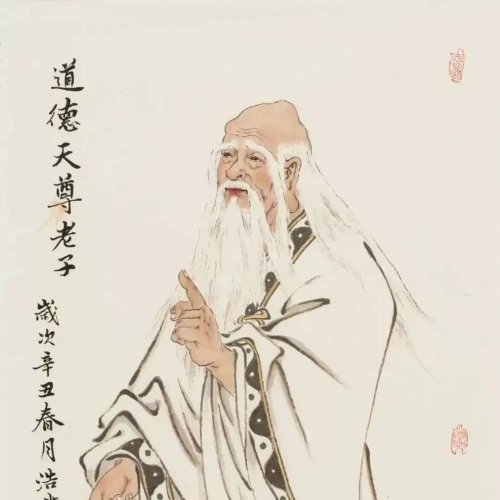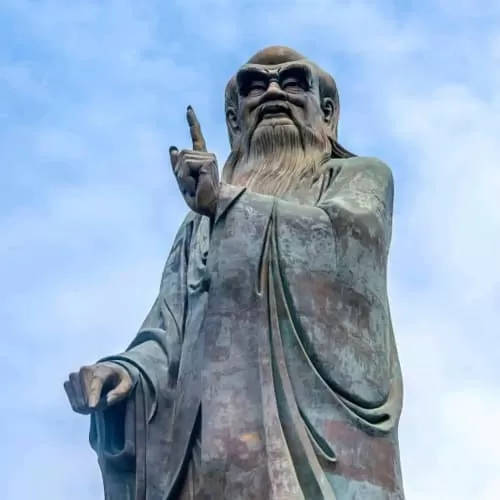
Laozi (approximately 571 BC to 470 BC, some say 571 BC to 471 BC), surnamed Li and named Er, with the courtesy name Dan and the courtesy name Boyang (also known as Boyang), was born during the Spring and Autumn Period. According to the Records of the Historian and the History of the Later Han Dynasty, Laozi was born in the State of Chu or the State of Chen, and was born in Qurenli (a town called Lai), Li Township, Ku County (today's Luyi), and Guoyang County, Anhui Province. Chinese ancient philosopher, literary figure, and historian, founder and main representative of the Taoist school, known as "Laozhuang" along with Zhuangzi. In the Tang Dynasty, he was regarded as the ancestor of the Li surname. Once listed as a world-renowned cultural figure and one of the world's top 100 historical figures.
Laozi once served as the historian of the Zhou Dynasty's treasury and was renowned for his extensive knowledge. Confucius once visited Zhou and asked him about etiquette. At the end of the Spring and Autumn Period, there was great chaos in the world. Laozi wanted to abandon his official position and retire, so he rode a green ox westward. When I arrived at Hangu Pass, I was invited by the magistrate Yin Xi to write the Tao Te Ching.
Laozi's philosophy has had a profound impact on the development of Chinese philosophy, with its core being the simple dialectics. In politics, it advocates governing by inaction and teaching without words. In terms of power, it is important to adhere to the principle that extreme things will inevitably lead to reversal. In terms of self-cultivation, the practice of being humble and honest, and not competing with others, is the ancestor of the dual cultivation of life and soul in Taoism.
The Tao Te Ching, also known as Laozi, is one of the most widely published works in the world.

Provides The Most Comprehensive English Versions Of Chinese Classical Novels And Classic Books Online Reading.
Copyright © 2025 Chinese-Novels.com All Rights Reserved
